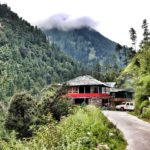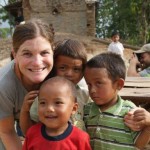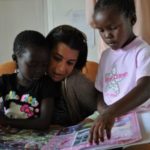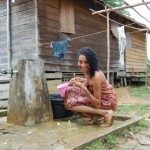7 Surprising Things about Volunteering in Tanzania
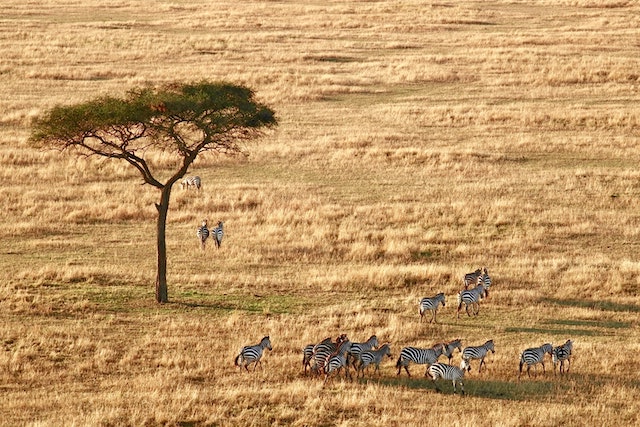
After studying abroad in Africa, I developed a fascination with the continent–everything from the people, to the landscape, the animals and the sunsets, but especially the social and economic gap. Four years later, I was at home in Brisbane feeling unfulfilled with life. My lifelong dream of becoming a Broadway star had somewhat diminished and I had no idea about what was next for me. I decided to do something completely different, put myself out in the world and become a volunteer in Arusha, Tanzania. My four months of volunteering gave me everything I had hoped for, but the day to day was really not what I was expecting.
7 Things that Surprised Me about Volunteering in Tanzania
1. The Volunteer Atmosphere
When I arrived at the volunteer house in Arusha, I was expecting to be welcomed with open arms, excitement and interest but instead was faced with blank faces from older volunteers who clearly didn’t want the ‘newbies’ affecting their time at the house. New volunteers arrived every 2 weeks and for the most part, volunteers were friends only with their group of arrivals – each group thinking that they knew more than the rest.
I ended up making lifelong friends from a myriad of different volunteer groups – but reality was so far from the image I had whilst sitting on the plane to Tanzania!
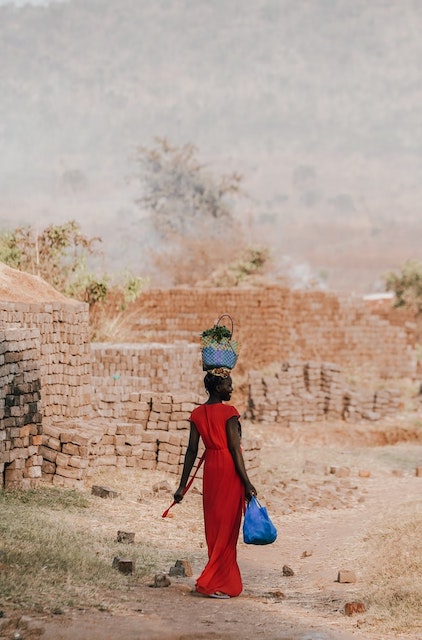
2. Being a Mzungu
My first weeks in Tanzania were a whirlwind of excitement, nervousness and unimaginable fun. Riding on the local public transport – dalla dallas – provided endless entertainment. Mini buses that cram up to 30 people in the back, along with goats, chickens, produce, whatever will fit! The constant call of Mzungu –white person, or European in Swahili – slowly became just a part of the day, as did the proposals from local men and strangers holding my hand as I walked down the street. A little more sinister are the catcalls and men of all ages blowing kisses at you as you walk by.
But it was very rare that I ever felt unsafe or scared in my surroundings. I was never robbed face to face – only via pickpockets – but that is not to say that it doesn’t happen. Most locals will look out for foreigners, understanding that they are in Tanzania trying to make it a better place.
3. Volunteering in an Orphanage
In Tanzania, children with only one parent are referred to as orphans. Many volunteers who sign up to work in an orphanage are placed, as I was, into a school. I was teaching 2 to 6 year olds their daily subjects, marking schoolwork, and trying to correct the mangled English that their teacher had taught them. But playtime was definitely the part I looked forward to the most. The ‘playground’ was a dirt road outside the classroom, complete with the local traffic – cars, motorbikes, cows and goats.
It didn’t take long for me to fall completely in love with the 20 children in my class – and I wouldn’t have changed my placement for anything!
4. Discussions About Money
In the Western world, money is rarely an open topic of conversation – and asking people for money is a very personal matter. White volunteers are often seen by locals as moneybags – people that come in to town, throw their money around and leave. And no one can blame them! It is often the reality of travellers that come to town.
I was periodically asked for money from my director for food, school supplies and rent for the schoolrooms. While I was not financially in a position to help, I was still dubious about handing over money to someone who was merely a stranger to me. After speaking to other volunteers we came to the conclusion that it was better to purchase anything to be donated instead of handing over the cash. One year later, I had raised enough money, along with a volunteer from Canada, to buy the school a bus. This ensured that the children had enough energy during the day to get something out of being at school that would help to prepare them for the future.
5. The ‘Big Brother’ Experience
We often described living in the volunteer house as living in the ‘Big Brother’ house. The volunteers were finished at placement between 12 and 4pm everyday, and after that, there wasn’t so much for us to do. There was a lot of getting to know each other, drinking and being bored at home. Don’t get me wrong, we had an amazing time together, but we had to improvise for daily entertainment.
I had some of the most fun of my life in that house, getting to know people from all over the globe while sharing such a unique experience.
7 Surprising Things about Volunteering in Tanzania.
6. The Tanzanian Nightlife
We would go out to clubs two or three times a week – which none of us expected would be part of our experience. It was eye-opening to meet locals our own age, to hear about their lives and to build friendships with them. It was also interesting to meet the ‘hunters’. The local men who come to clubs to pick up white women, with their dazzling smiles, and broken English. Watching the Tanzanians dance though, was the best part of a night out.
7. How Arusha Would Change My Life Forever
I met volunteers from around the globe who will remain lifelong friends; the close bond you form when you have that kind of experience with a stranger is unbreakable. Life in Arusha is raw. The highs and lows are higher and lower than anything you have experienced at home. Heartbreaking stories are carried on the shoulders of each and every volunteer who has been working with kids of all circumstances. For most, they return home after their time in Arusha is up, and the burden slowly fades. But for some of us the slight chance that we could make a difference to the lives of those living in poverty holds on, and there is no looking back.
It’s strange to look back three years and remember the person I was back then, the difference between my expectations and the reality that is second nature to me now. I could never have imagined that Arusha would become my home.
7 Surprising Things about Volunteering in TanzaniaVolunteering in Tanzania photo credits by Unsplash.




